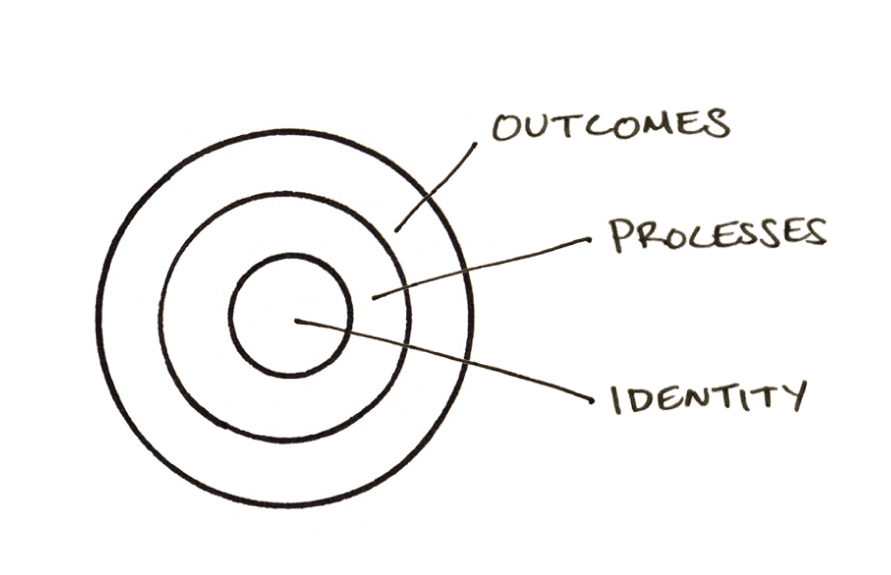The Problem With Beliefs
Reading time: 5 min
Photo by Ran Berkovich on Unsplash
Believe it or not
The other day, my wife was telling me how much she misses exercising.
Before the pregnancy, she used to go for a run three times a week, and more often than not, she implemented with yoga sessions and, during the last trimester, with swimming. Now, after a difficult delivery and the tiredness of contracting Covid, she’s not been able to start her sweat regimen again, and was trying to let me know it is time.
She listed classes she wants to attend, swimming pools and gyms she wants to subscribe to, and all of this while I was contemplating my round and soft dad gut.
Photo by Caley Vanular on Unsplash
“You know,” she said. “You should start exercising again too.”
I know she’s right. She’s always right, and not only because she’s my wife; but I also know that this is not going to happen.
When I was younger, in my twenties mainly, I used to be a professional basketball player. I used to train five to seven days a week and my level of fitness was astronomical because of the highly competitive environment that was sustaining my career.
Those days are long gone, lost in clunky knees and torn muscles, but sometimes, when I feel optimistic, I still dream of joining a team.
So, what’s the problem? Why am I not beginning the process of getting into shape? This, unfortunately, has to do with my identity and what I believe I can do.
I believe it is impossible for me to get back to that level of fitness—or any level of fitness nowadays; every time I try I end up injuring myself—and this, in turn, makes it impossible for me to even begin.
The three layers of behaviour change
This is not a revolutionary concept.
The problem with belief and identity is double-edged. If you want to do something that clashes with your identity, it’s going to be very hard for you to pick up the habit, but at the same time, picking up a new habit is the only way to reshape your identity.
This is explained in thorough detail by James Clear in Atomic Habits, the best self-improvement book of all time, in my humble opinion.
Courtesy of: JamesClear.com
He states that there are three levels at which a behaviour change can occur:
The Outcome Layer. This is concerned with results; for example, showing a six-pack or writing a novel.
The Process Layer. This one deals with your habits; implementing an abs workout or a writing practice.
The Identity Layer. This is the deeper level and it deals with your beliefs; your body-image or the stories you think are worth being told.
The direction in which you face those layers is also very important, James says.
An outcome-based approach to change your behaviours is much more likely to clash with your identity and beliefs, while an identity-based habit is likely to become embedded in yourself.
“Your identity emerges out of your habits. You are not born with preset beliefs. Every belief, including those about yourself, is learned and conditioned through experience.”
In other words, I’ve got much higher chances of actually obtaining that six-pack I’ve been chasing since my first knee surgery if I believe I am a gym person, rather than thinking I want to look good in the mirror.
The power of belief
This brings me to the last part of this article.
In our daily lives, the way you can affect your identity change is with small wins. If I do ten sit-ups for three days in a row, I might start believing I am a healthy person, and maybe, the fourth day, I’ll do twelve.
But belief is much more powerful than this.
Earlier this month, Marina Ovsyannikova, a Russian journalist working for the Russian Channel 1, ran on to the set on Monday holding a sign saying "no war".
(At the time of writing this article, she has been released.)
She did it in spite of the sanctions in place in Russia at that moment against “fake news.” She did it facing fifteen years in prison and, possibly, much worse.
I don’t know Marina. The first time I saw her was on the news, but I bet I can guess why she did what she did.
She did it because she believes.
She did it because she believed her sacrifice, her act of courage would go far, helping to overturn something she deeply believes is wrong.
I usually don’t like repeating myself, but during these times, I think it’s important. Humanity is not defined by wars. Global peace is achievable. No one has to die for the ambitions of someone else. We all have to believe this, to change the world from within and, most of all, we all have to believe that:
“Very little in history is inevitable.”
Alla prossima.
Photo by Max Kukurudziak on Unsplash





